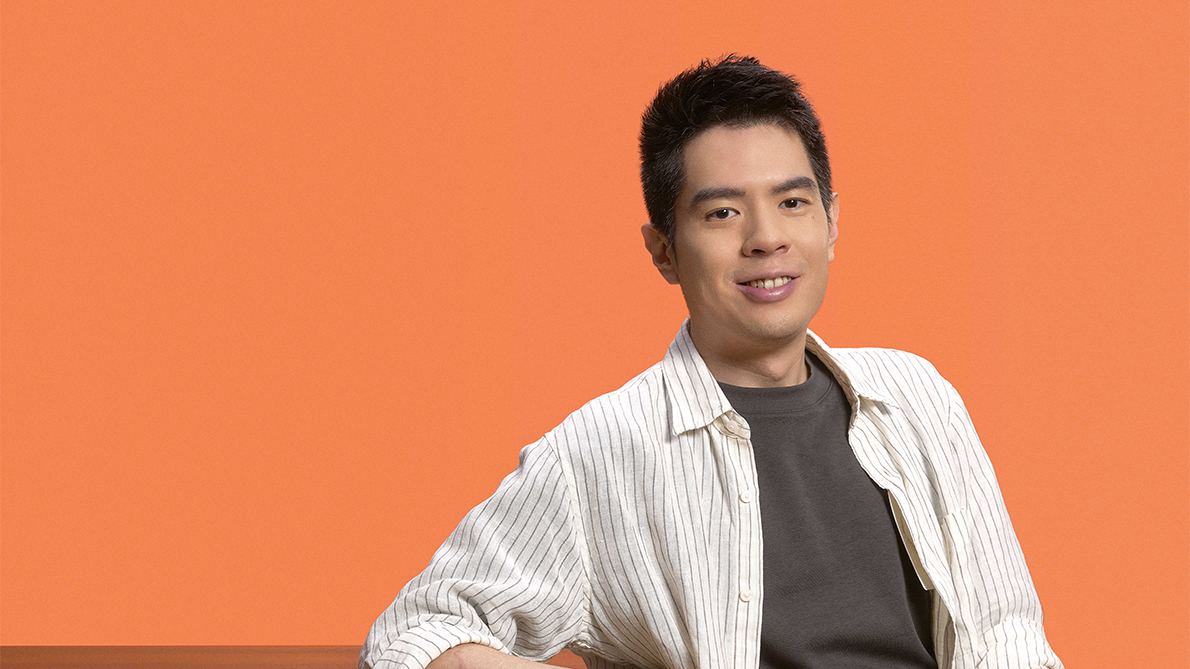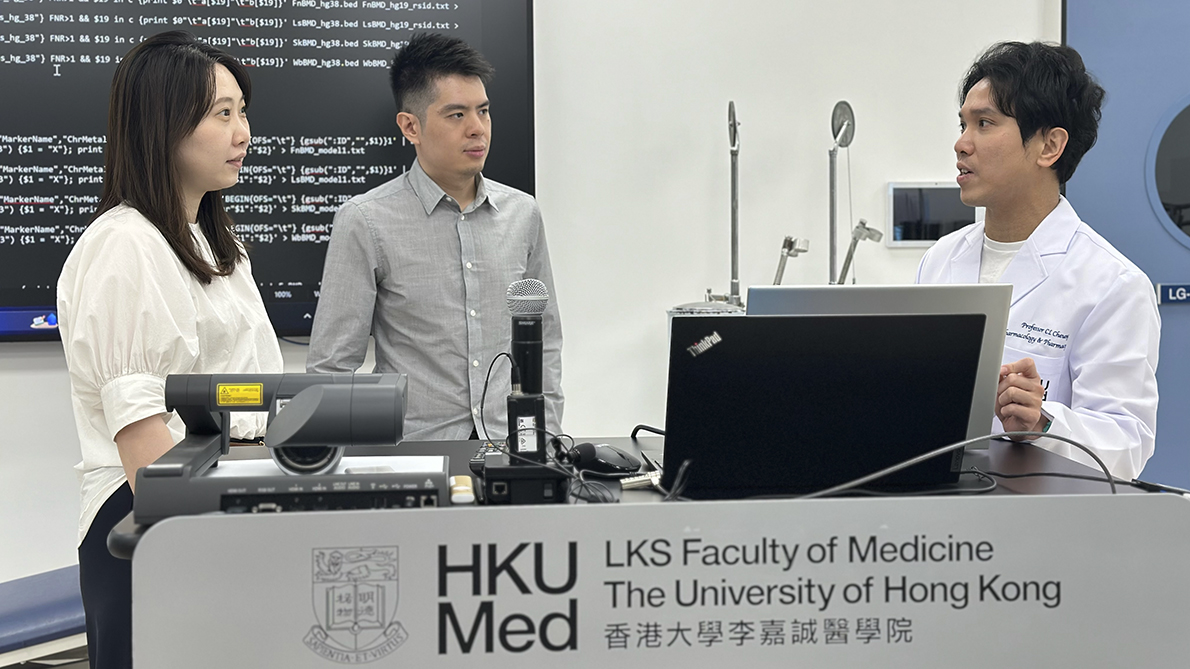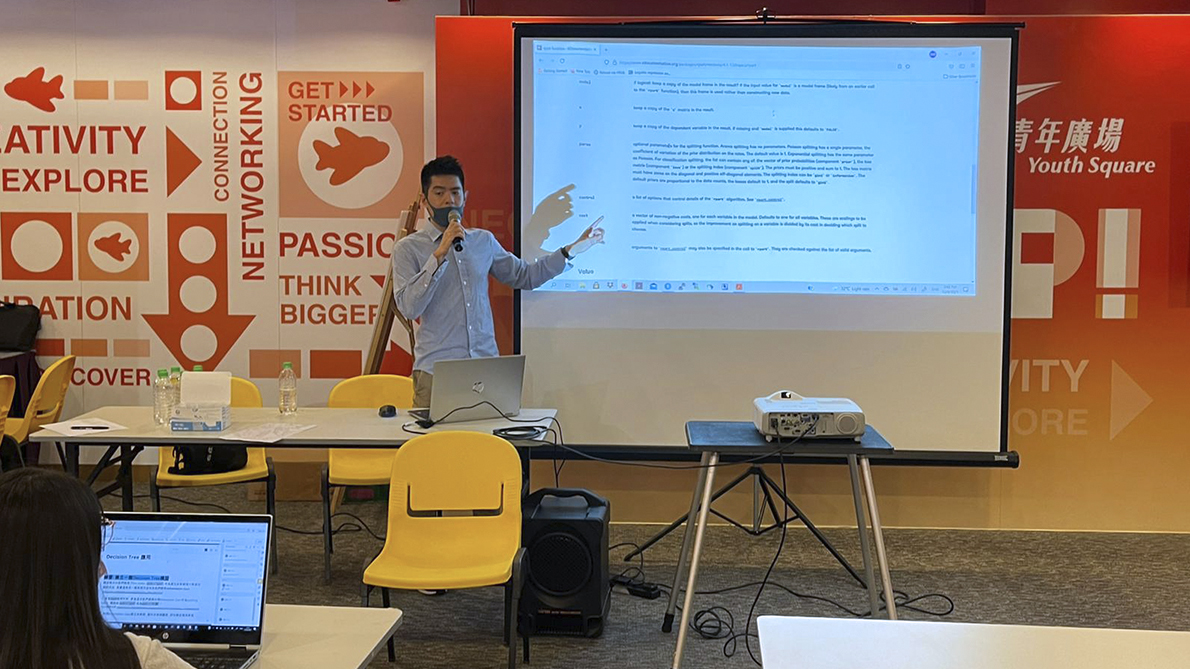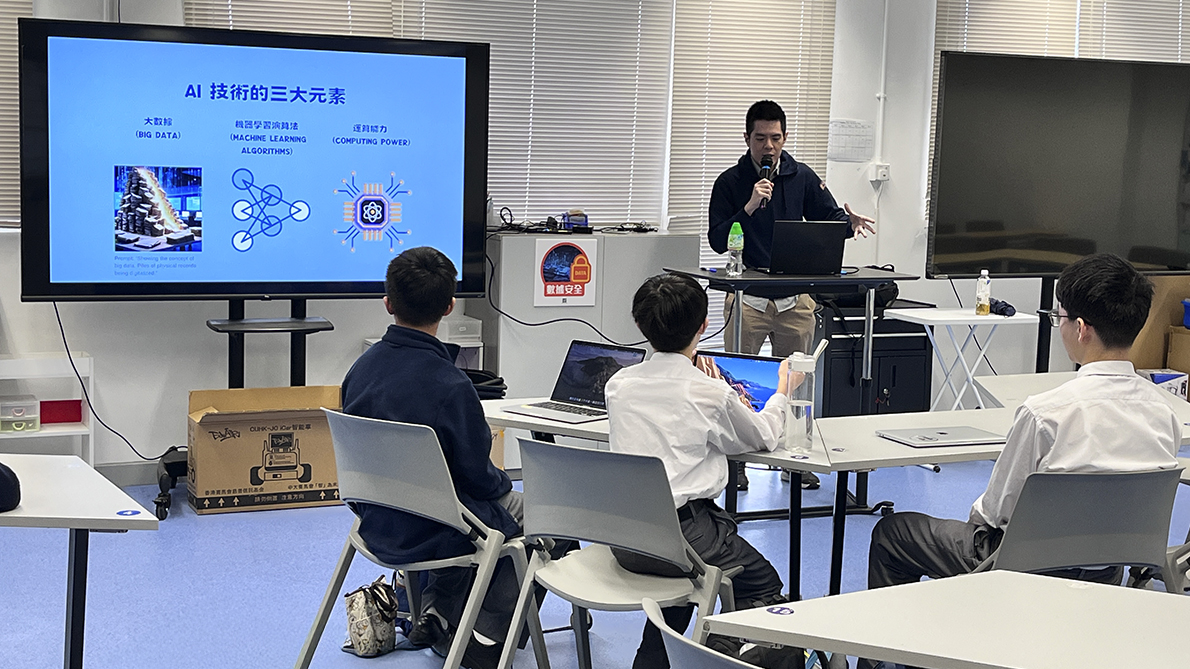Making Scientific Research Useful for Everyday Life Through AI
Warrington Hsu (ComboKid, Sky Catcher)

Artificial Intelligence is steadily becoming a part of all of our lives – or is it? Surely it doesn’t make any difference to elderly people or children. Warrington Hsu, who graduated with a PhD in Epidemiology from The University of Hong Kong in 2024, might beg to differ.
Born and raised in Hong Kong, he holds a BSc from the University of Otago in New Zealand, where he became interested in the emerging field of health data research. “At the time, ‘big data’ wasn’t yet a buzzword,” he recalls, “But I came across the work of Professor Ian Wong at HKU, who was already pioneering the use of centralised electronic health records to drive public health and epidemiological research.”
He joined Professor Wong’s lab as a research assistant, and then after gaining a few more years of experience in the industry, he began working on his PhD at HKU, where he would receive the Sun Chieh Yeh Heart Foundation Young Investigator Award. “My research focused on the application of machine learning in public health, using big data to study the health trajectories of patients with hip fractures through electronic health records,” he says.
“One thing I appreciated most at HKU was the chance to apply my skills to a wide range of health problems – like hip fractures, cardiovascular disease and dementia –rather than being confined to a narrow research topic,” he observes. He appreciates how the University allowed him to collaborate with and learn from people with diverse backgrounds, including medicine, statistics, and computer science.
“During my PhD,” he continues, “my research was focused on older populations. But through that work, I began to notice parallels between the needs of older adults and young children.” Both are life stages that require significant care, support, and attention from those around them and both benefit enormously from early interventions – be that fall prevention in elderly people or developmental support in children. “That realisation gave me a broader perspective on health across the lifespan,” he says.
There was however an aspect of academic life that he was concerned about. “I often felt that the valuable health insights we uncovered were locked away in academic journals, out of reach for the public. I was surrounded by expert knowledge and rich health data, yet ordinary people, like parents, had little access to that kind of guidance,” he says.
“My training at HKU helped me approach these public health challenges with both empathy and structure,” he notes, recalling how his PhD supervisor, Professor CL Cheung, often reminded him that it’s not just about applying the latest AI technologies, but about understanding the healthcare problems they’re meant to address. “That mindset has stayed with me and continues to shape how I design solutions that are not only technically sound, but also grounded in the real needs of the people they’re built for.”
Warrington is now the founder of two ventures: ComboKid, a data-driven parenting platform offering personalised child development guidance, and Sky Catcher, an AI education company delivering hands-on, engaging STEM learning experiences to schools and organisations.
HKU played an important role in ComboKid’s early development. “We received support from iDendron and ComboKid was selected as an awardee of the HKU DeepTech100 programme,” he says. The iDendron team gave them valuable advice on navigating resources and opportunities that could help their start-up grow. “That early guidance, along with HKU’s endorsement, gave us the credibility and momentum we needed at the beginning of our journey,” he says.
The idea behind Sky Catcher came from his first-hand experience working with AI and big data technologies during his PhD studies, and seeing how rapidly AI was transforming industries like healthcare. He feels that the essence of what Sky Catcher does – turning the working experience of scientists and engineers into educational content – was directly inspired by his time conducting research at HKU on applying big data and AI in medicine. “The process of designing studies, tackling real-world challenges with data, and interdisciplinary collaboration laid the foundation for our AI education curriculum,” he says.
He and his team have recently secured partnerships with local secondary schools under the IT Innovation Lab funding scheme, which allowed them to roll out their AI STEM workshops across Hong Kong, and they have also started collaborating with an internationally recognised contemporary artists and scientists to co-develop new content formats.
“Both ComboKid and Sky Catcher are part of a bigger vision I have around science communication – making scientific knowledge more accessible, relatable, and actionable for the public,” he says. With ComboKid, that means translating expert insights into practical parenting support, while Sky Catcher is about inspiring the next generation through creative, hands-on learning experiences that make AI and STEM feel relevant and exciting.
He sums it up by noting, “I believe science shouldn’t stay locked in journals and labs – it should be part of everyday life, helping people explore their curiosity, make informed decisions and feel empowered to shape their futures.”



